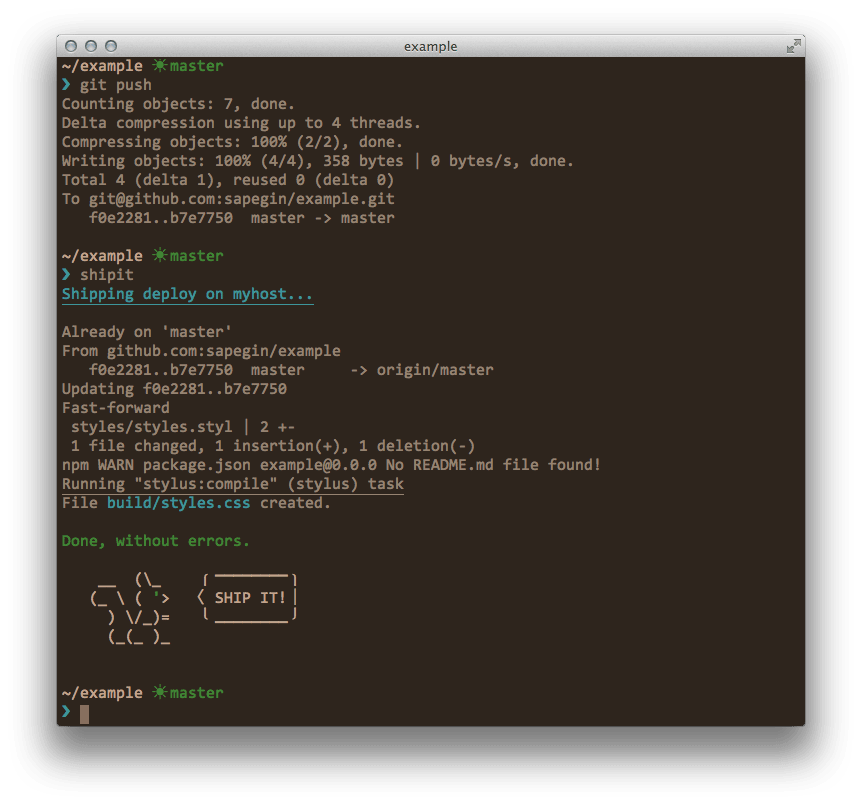

It will also place a file called nf in the root of the folder you shipped, and if you have a gitignore, add it to your gitignore because you don't want to commit your sensitive information.

Ship would then prompt me for authentication details if needed, and send the files off to their destination. The command line interface is simple - just follow the format below ship /path/to/folder -to deployer-nameįor example, if I wanted to ship my desktop via s3 to my server (why? no idea), I could run ship /Users/jeff/Desktop -to s3.

If you'd like to integrate it into your node app, skip to the section below on the javascript API. If you are using ship directly for your own deployments, its primary interface is through the command line. Ship is also built on the adapter pattern, so if there's another platforms you'd like to deploy to, the project structure is easy to understand, and you can write a deployer, send a pull request, and we'd be happy to include it. Ship is small library that deploys files smoothly to the platforms listed below: If you often need to deploy files quickly to bunch of different platforms, or you have an app or library written in node and would like to give your users the ability to deploy files to a variety of platforms, ship is probably what you are looking for. Note: This project is in early development, and versioning is a little different.


 0 kommentar(er)
0 kommentar(er)
